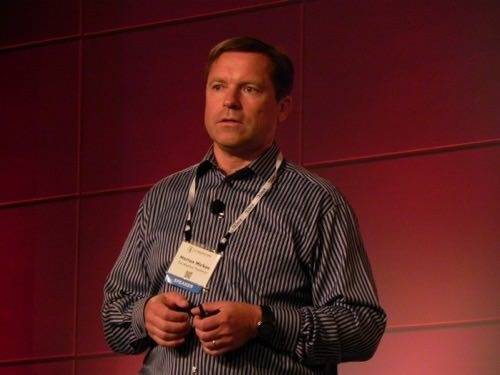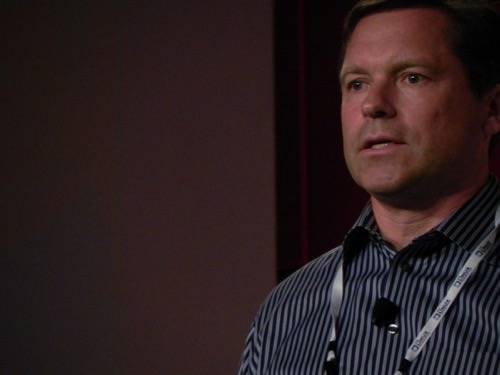Marten Mickos CEO of Eucalyptus Systems, formerly CEO of MySQL AB, echoed a common concern in his keynote at LinuxCon North America 2011. While celebrating the 20th anniversary of Linux and the past decade of accomplishments of open source, Mickos cautioned the audience gathered in Vancouver, BC that they need to be worried about protecting the “share and share alike” nature of open source in the cloud.

Mickos started with a pretty standard set of observations about cloud computing and Linux’s role in cloud computing. He talked about the history of Linux, how the last 10 years were all about the LAMP stack, and he talked about how the role of open source is changing. Previously, says Mickos, open source has been a disruptive play. Linux disrupted and has displaced traditional Unix, open source databases have disrupted and displaced proprietary databases and so on.
But Mickos, like many others at LinuxCon, says that has shifted to innovation. “It’s not so much about disrupting anymore, it’s to innovate.. the centerpiece for innovation. Any company with an IT strategy needs an open source strategy.”
But with the shift from disruption to innovation, there’s also been a shift in openness. It was always understood that the licensing would ensure that open source would be, well, open. Now? Not exactly. “In cloud, open is the preferred raw material… everybody is using open source as building blocks… that’s a victory already,” says Mickos. “But will open also be the preferred delivery condition?” That’s unsure, says Mickos, and it’s important to protect the openness. We need a few more Richard Stallmans, says Mickos.
The problem is that it’s tougher to define “share and share alike” in the cloud space. It’s not just about code, it’s also about data, APIs and company policies that affect whether use of cloud services are open or not. “The border line between me and the one serving me is different. If I’m a Facebook user, I don’t need the GPL to protect me… I need the right to withdraw my data.

The definition of open needs to change, says Mickos. “Though the GPL is a great thing… as we move into the cloud, it’s not enough. We need to extend the definition of open for code, data and APIs.” Mickos closed the keynote saying that the community needs to protect the principles of “sharing and sharing alike” for the next generation to enjoy it in the cloud the same way the current generation has enjoyed it with Linux and open source.
The question, which was unfortunately left unaswered, is how? The GPL provides a pretty solid blueprint for “share and share alike” when it comes to code. Open source licenses in general do a good job of ensuring openness for code – but do nothing to promote openness for cloud services and the other things users and developers care about in the cloud. The question of how the open source community can promote open beyond code is still open.

Mickos says we need more Richard Stallmans, but Stallman has famously thrown his hands up when faced with the cloud and suggested that developers and users avoid it altogether. So if we’re going to promote openness across the various “degrees” of cloud from Google search to Facebook to hosted cloud platforms, it’s going to take a new set of thinkers that can figure out a Copyleft for the cloud that touches APIs and data as well as code. Any takers?

















